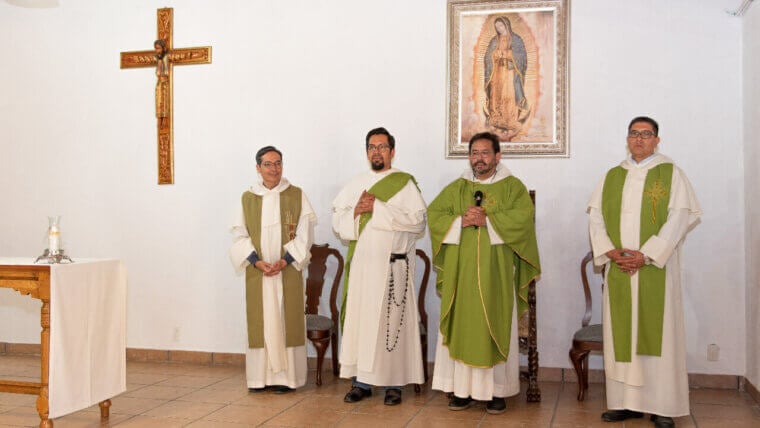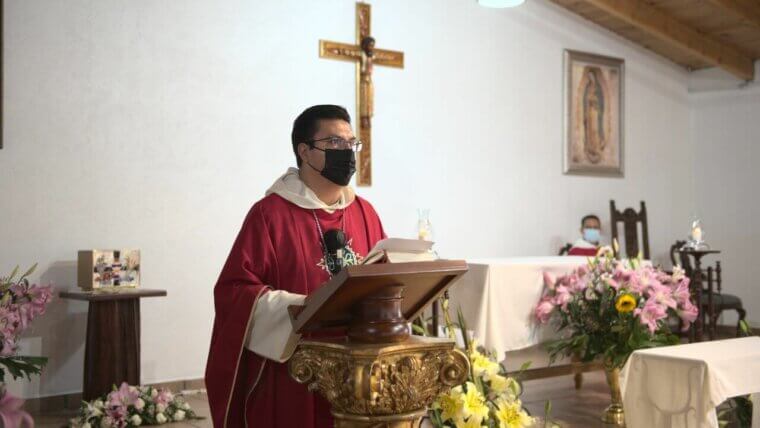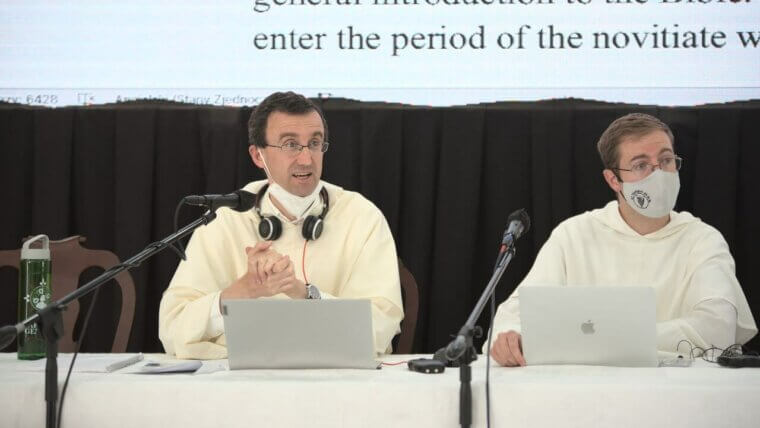Homily – 19.07.2022

Yesterday we listened to the words of God through the prophet Micah facing the people with their infidelity and lack of holy conduct. Today we listen to the same prophet pleading with God to have compassion with human weakness.
Was not this the attitude of Dominic in his cries of anguish during his night prayers, the tears that he shed before human misery and suffering?
The prophet was a very uncomfortable person; he was uncomfortable to himself and uncomfortable to others. He was uncomfortable to himself because he was entrusted with the very WORD OF GOD, the Sacred WORD, and he was all too aware of his human frailty. He was uncomfortable to others because the Word of God was the Word of truth. He was tasked to tell God’s people what they needed to know, which is not necessarily what they wanted to hear. And yet the prophet was also one who interceded before God for his people. Show Mercy and Compassion on your people.
As an Order of Preachers (religious men and women and laypeople), as a truly DOMINICAN FAMILY, we are also participants in the Prophetic mission. Our mission is prophetic. Like the prophets we are also uncomfortable persons. We are uncomfortable with ourselves for the same reasons as the prophets. In taking our vocation seriously we embark upon our mission with fear and trembling. But we take courage in the advice of Humber of Romans. In his book on the Mission of the Preacher he laments that some are reluctant to go out and preach because they fear that they may succumb to temptation and sin. His reply is that it is better to go out and preach and get your hands dirty than to remain in your room spotlessly clean doing nothing.
We are uncomfortable to others also for the same reason as the prophets. The truth is not always well received. It confronts us first and then those to whom we are sent with the stark reality of our human failings, of the existence of evil and injustice, and the need to turn to God and begin a new life, a life of holiness. But like the prophets, we Dominicans have not been called to become successful preachers; we have been called to be faithful preachers. If we bank the future of our vocation on success, then we have two alternatives: you either change your mind, or you change your job.
Something that has always fascinated me in the life of Dominic is the period between 1206 and 1215. The period that I like to term “the hidden years”, the years when he was left totally alone. The preaching team of Cistercians and others had left, Diego went back to his diocese and died some time later. During that period where he was preaching alone before a frequently hostile audience it was easy to succumb to the temptation to return to the peace and quiet of the cloister of Osma, instead of remaining in Carcassonne where nothing was going nowhere. And yet, knowing the Letters of Paul he would have taken courage at the words of the Apostle to the Gentiles to Timothy: “Suffer with me for the Gospel and trust in the Word of God… for I know Him in whom I have believed.”
This leads us to today’s Gospel. The words of Jesus have to be considered as a challenge. He challenged each of the apostles to follow him unconditionally. He was showing his natural family that his mission is now doing the will of the Father in preaching to and healing the wider family of God. This is also our Dominican challenge. Why did Dominic attract so many young university students in his time? People like Jordan of Saxony? In those days young people entered university in order to seek a career either in the Church or in civilian life. Dominic confronted them with an alternative: To transform their desire for a successful career into a desire to preach and save souls.
That is our vocation today also. This is our future. In this we have placed our lives. Last Sunday Brother Gerard drew the important distinction between optimism and hope. Optimism relies on calculation and prediction; hope relies on Divine Providence. At the end of Compline, we Dominicans sing the antiphon O Spem Miram. O Wonderful Hope. This is the hope engendered by our vocation: that Dominic will remain more of service to us as an intercessor before God than he ever was during his earthly life.
As we proceed with our work in this General Chapter let us make ours the words of Paul: “The one who has begun this good work in me will follow it right to the end.”
Br. Joseph Ellul, OP







